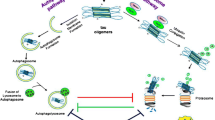Summary.
Proteomics offers the opportunity elucidate the complex protein interactions of cellular systems by studying the products of genes, i.e., proteins, and their structure, function and localization. The purpose of proteomics is to explain the information contained in the genome sequences in order to provide clues on cellular events, especially related to disease.
Our proteomic approach has made possible the identification of specifically oxidized proteins in Alzheimer’s disease (AD) brain, providing for the first time evidence on how oxidative stress plays a crucial role in AD-related neurodegeneration. This represents an example of the use of proteomics to solve biological problems related to disease. The field, which is still in its infancy, represents a very promising way to elucidate mechanism of disease at a protein level. However, the techniques that support its development present several limitations and require introduction of new tools and innovation in order to achieve a fast, reliable and sensitive method to understand normal biological processes and their regulation as well as these cellular properties in disease.
Similar content being viewed by others
Author information
Authors and Affiliations
Rights and permissions
About this article
Cite this article
Butterfield, D., Castegna, A. Proteomics for the identification of specifically oxidized proteins in brain: Technology and application to the study of neurodegenerative disorders. Amino Acids 25, 419–425 (2003). https://doi.org/10.1007/s00726-003-0027-7
Received:
Accepted:
Published:
Issue Date:
DOI: https://doi.org/10.1007/s00726-003-0027-7




